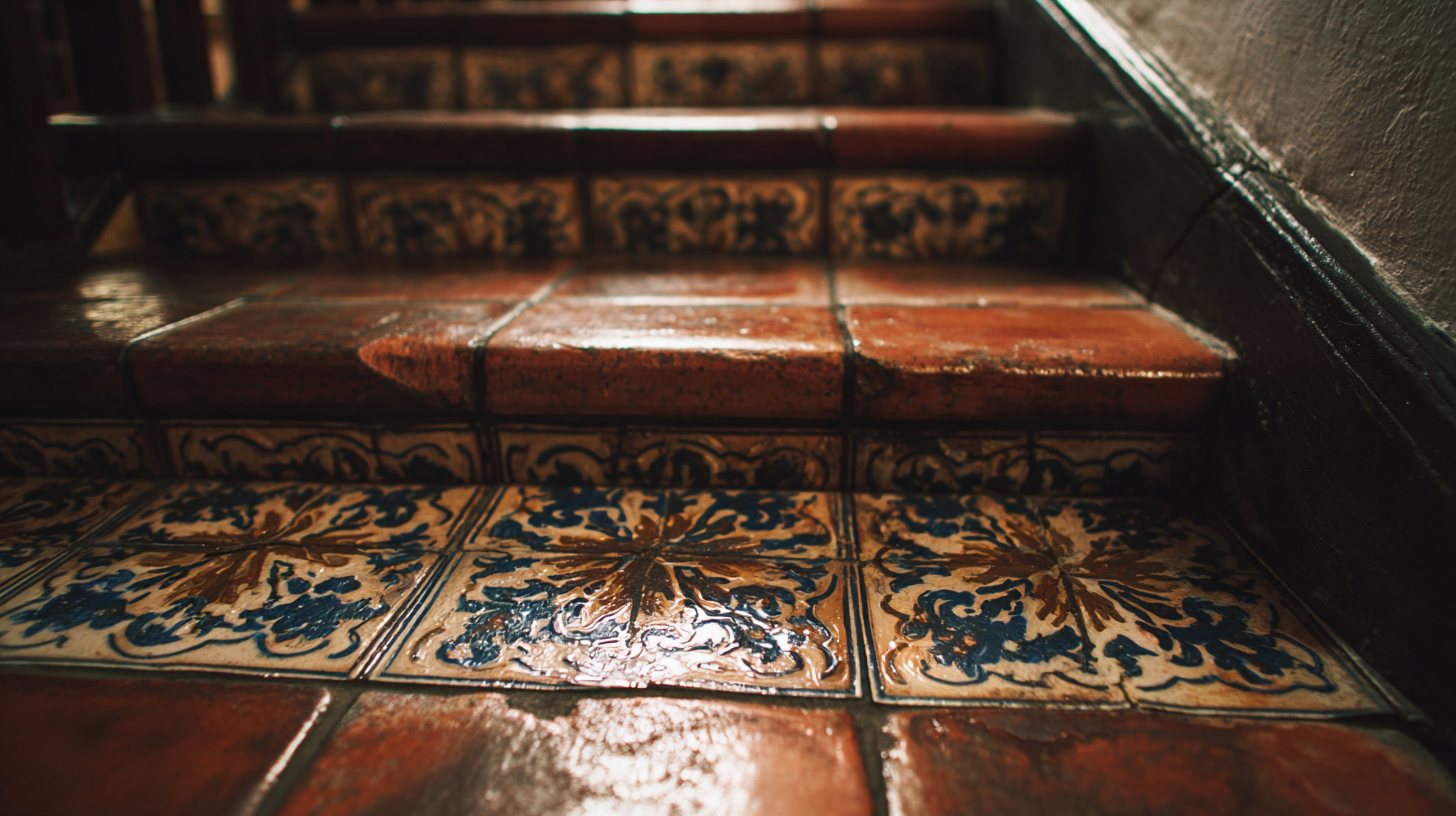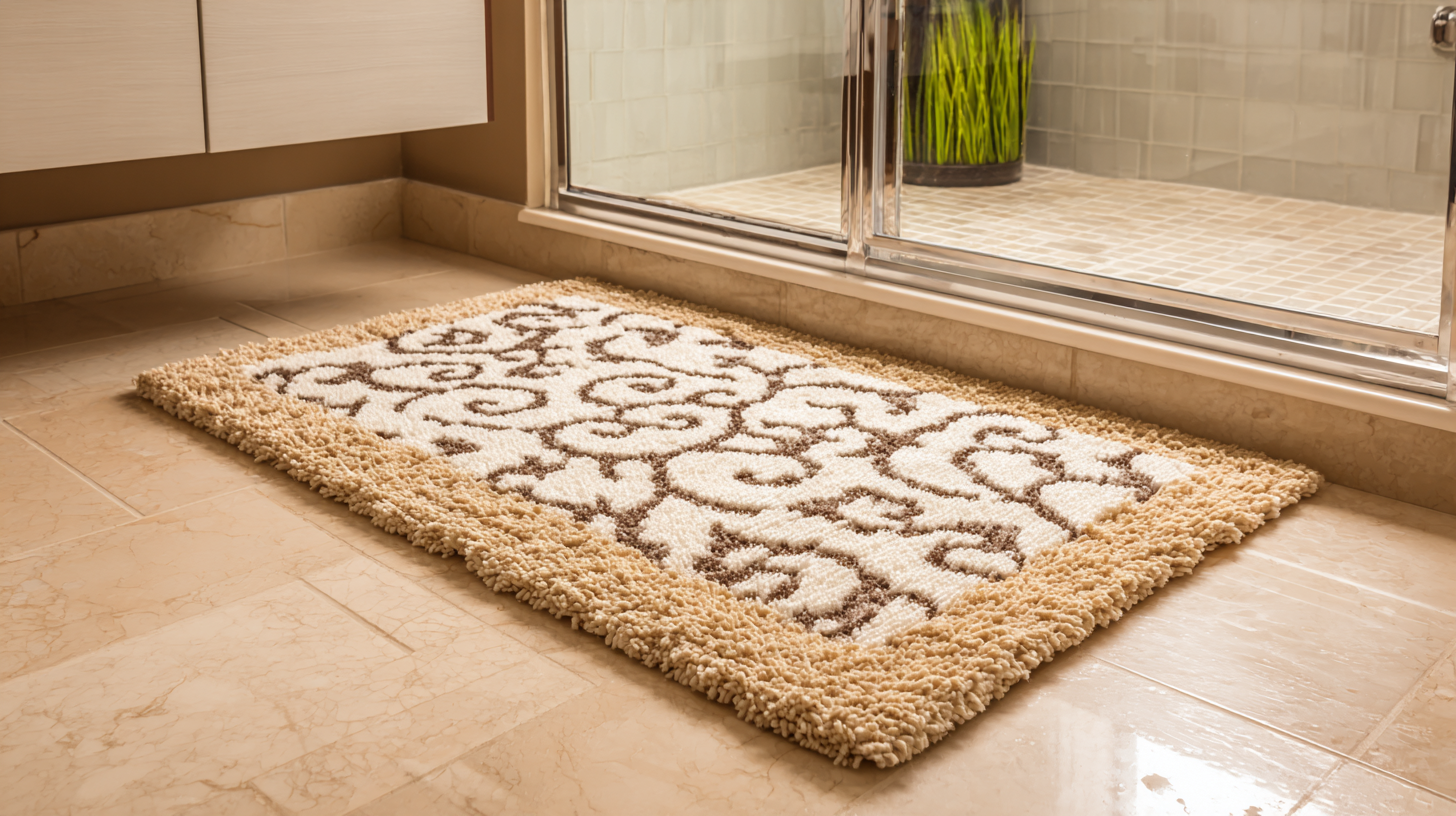The global market for home textiles, including products like Shower Room Carpets, is rapidly expanding, with projections indicating a growth rate of 4.6% from 2021 to 2028, according to a recent report by Grand View Research. As consumer preferences shift towards enhancing comfort and aesthetics in bathrooms, the demand for high-quality Shower Room Carpets produced under stringent import-export certifications has surged. These certifications ensure that products meet international safety and quality standards, allowing manufacturers from countries like China to effectively compete in a global marketplace. Understanding the intricacies of these certifications not only aids businesses in compliance but also enhances consumer confidence in their purchases. In this blog, we will explore the essential certifications for Shower Room Carpets and provide a comprehensive step-by-step guide to navigating the import-export process successfully.

When diving into the import and export of shower room carpets, understanding key certifications is crucial for compliance and quality assurance. Notably, certifications such as ISO 9001 (Quality Management Systems) and Oeko-Tex Standard 100 can significantly enhance product credibility. According to a report by MarketsandMarkets, the global market for flooring, which includes carpets, is projected to reach approximately $450 billion by 2027. Importing carpets that meet these standards helps manufacturers tap into this lucrative market, ensuring they meet consumer expectations for both safety and quality.

Additionally, specific certifications such as CE marking and compliance with the REACH regulation within the European Union are necessary for accessing European markets. The European carpet industry, valued at around €34 billion, prioritizes environmentally friendly and safe products. Compliance with these certifications not only aligns with regulatory requirements but also strengthens brand reputation. By acquiring renowned certifications, producers can demonstrate their commitment to environmental sustainability and consumer health, leading to increased market share and customer loyalty in the competitive carpet industry.
In today's globalized carpet trade, compliance with international standards is crucial for success. The International Organization for Standardization (ISO) has established guidelines that help manufacturers and exporters verify the quality and safety of their products. For example, compliance with ISO 9001 can enhance customer satisfaction through improved quality management. According to a report by Allied Market Research, the global carpet market is estimated to reach $78 billion by 2027, underscoring the need for adherence to these standards to remain competitive.
Tips: Always stay updated with the latest compliance regulations relevant to your target markets. Utilize resources such as trade associations and government bodies to ensure your products meet necessary certifications, like the CE marking in Europe or the ANSI standards in the United States.
Furthermore, understanding the significance of certifications like the Global Organic Textile Standard (GOTS) cannot be understated, especially as consumers increasingly prefer sustainable products. A study by Transparency Market Research indicates that eco-friendly carpets have seen a growth rate of 10% over the past few years. By focusing on compliance, companies can not only improve their marketability but also contribute to sustainable practices, further appealing to environmentally conscious consumers.
Tips: Engage with certification bodies early in your product development process to avoid costly delays. Investing in training for your team about certification processes can expedite compliance and market entry.

Obtaining import-export certifications is crucial for businesses aiming to trade high-quality shower room carpets internationally. The process ensures that products meet specific standards required by different countries. According to a report by the International Trade Administration, compliance with these certifications can enhance market access, with over 80% of exporters acknowledging its importance in gaining customer trust and facilitating smoother transactions.
To begin the certification process, businesses should first identify the relevant certifications required for their target markets. For instance, the European Union mandates compliance with CE marking for certain products, indicating they meet health and safety standards. Next, companies must prepare documentation such as product specifications, safety testing results, and quality assurance procedures. Research from the World Trade Organization indicates that robust documentation can reduce trade barriers, which supports an efficient clearance process at customs.
Finally, firms should apply through the relevant authority for their selected certifications, undergoing rigorous evaluations or audits as needed. Having a well-prepared application can significantly expedite approval, allowing businesses to capitalize on lucrative international markets quicker. A survey by the World Bank reveals that effective compliance can reduce time-to-market by up to 30%, emphasizing the value of investing in a comprehensive certification process for shower room carpets.
The demand for shower room carpets has surged globally, prompting various certifications to ensure quality, safety, and compliance across different regions. A comparative analysis of shower room carpet certifications worldwide reveals significant variations rooted in local standards and consumer expectations. For instance, the American Society for Testing and Materials (ASTM) established guidelines that focus on moisture resistance and slip resistance, critical factors in the safety of shower room environments. According to a report by the Global Market Insights, the market for bathroom textiles, including carpets, is projected to reach $14 billion by 2025, underlining the importance of compliant and certified products in this growing sector.
In Europe, the EN 14041 standard plays a pivotal role in defining performance criteria for floor coverings, which include shower room carpets. This certification mandates rigorous testing for water permeability and durability, ensuring that products can withstand repeated exposure to moisture without degrading. A study conducted by the International Textile and Apparel Association highlighted that carpets meeting these stringent standards reduced mold and mildew growth by up to 25%, thereby improving hygiene in shower room settings. Recognizing these differences in certifications is essential for manufacturers aiming to penetrate international markets while providing consumers with safe, high-quality products.
| Certification Name | Issuing Authority | Region | Key Requirements | Validity Period |
|---|---|---|---|---|
| ISO 9001 | International Organization for Standardization | Global | Quality Management Systems | 3 years |
| CE Marking | European Commission | European Union | Safety, Health, and Environmental Protection | Indefinite |
| ASTM D4150 | ASTM International | USA | Standard Guide for Textiles | N/A |
| BIFMA | Business and Institutional Furniture Manufacturers Association | USA | Furniture Sustainability Standards | 5 years |
| ECOCERT | ECOCERT SA | Global | Organic Certifications | 1-3 years |
When it comes to importing and exporting certified shower room carpets, several challenges can arise, particularly concerning compliance with various international standards. One of the primary difficulties is navigating the complex web of certification requirements that differ from country to country. Each region may have specific regulations regarding material safety, environmental impact, and fire resistance, making it crucial for importers and exporters to stay up-to-date with the latest standards. Failure to comply can result in delayed shipments and increased costs, not to mention the potential for damaged business relationships.
Another significant hurdle is ensuring adequate documentation and proof of certification. This process often involves meticulous record-keeping and thorough communication with manufacturers and suppliers. Certifications should not only be valid but also easily accessible for authorities during customs inspections. Moreover, discrepancies or missing documentation can lead to fines or confiscation of goods. Hence, it is vital for businesses involved in the trade of shower room carpets to establish a robust system for managing certifications, ensuring that all products meet the necessary legal standards and can be transported without undue complications.
This chart illustrates the various certifications required for importing and exporting shower room carpets, highlighting the number of certificates necessary for compliance in different regions.
